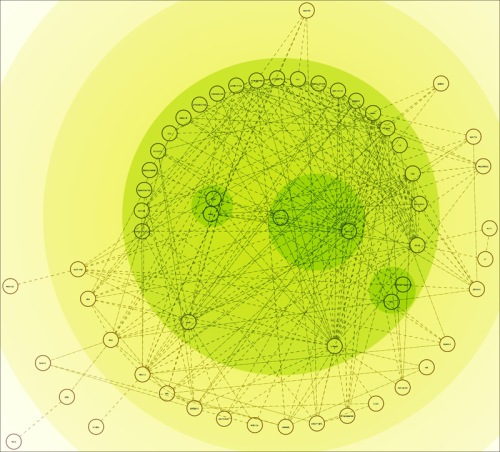Contemplating the shortcomings of the younger generation has ever been a hobby of the elder. As I start to transition to the latter population (perhaps a bit early for my age), I’ve found myself worrying more and more about the kids, and how little they seem to appreciate things. That kind of complaint is neither constructive or original. But the fact is that the kids are growing up pretty weird these days, because of the way technology has outpaced our institutions of learning and standards of knowledge.
The short attention span and reliance on non-text media are to be expected in an age where attention is indulged by on-demand information, and the effects of these things will continue to be written about, rightly and wrongly. There is a more subtle and insidious trend, however, that may prove to be more damaging than tech-born changes in learning modality.
It’s a process that has been going on for a long time, but that recent developments may push to the breaking point. The problem, as I see it, is that we have stopped valuing the accumulation of information within ourselves.
Externalization
The fact that virtually all of the world’s knowledge is only a few taps away is truly mind-blowing. No matter who indexes it, who serves it, who edits it — the knowledge is there, and the knowledge is with you, always. This is one of the most important developments in history, and its repercussions can’t be underestimated. But to consider it an unmixed good would be premature and naive.
 Think of that habit which I and likely everyone reading this succumb to now and then. You are talking with a friend, and can’t remember who that guy was in that movie. Without thinking, you pull out your phone and search. Mystery solved, it was Patrick Swayze. Harmless enough, right? The web in our pocket allows us to settle bar bets and track down trivia with ease. A tiny load off everyone’s mind.
Think of that habit which I and likely everyone reading this succumb to now and then. You are talking with a friend, and can’t remember who that guy was in that movie. Without thinking, you pull out your phone and search. Mystery solved, it was Patrick Swayze. Harmless enough, right? The web in our pocket allows us to settle bar bets and track down trivia with ease. A tiny load off everyone’s mind.
The problem lies with the trend. We’re looking up more things, more often, and not because we’re more curious. It’s because we can’t be bothered to retain even the data that matter to us. The GPS in cars is an advance party of this trend: every couple months we hear of some driver who has followed the GPS to the bottom of a lake, or used a highway as a walking path because it was labeled as such on their phone’s map. My dad, who has driven to visit my brother in Vancouver, B.C., a dozen times, still uses the GPS despite my brother living in the same neighborhood for several years now. When I went up with him a month ago, the GPS route was slightly different, and my dad nearly had a panic attack. I convinced him to take the correct exit, but he was this close to doing something he knew was wrong simply because the map indicated he should.
Now, I don’t mean to rest my case on these anecdotes. But there is truth in them, and you likely recognize yourself in them to some extent.
Because of this reliance, do people know their cities, roads, and neighborhoods better? Not as well? Or simply in a different way? After all, services like Foursquare and Urban Spoon encourage serendipitous discovery of restaurants and locations. I think it is a strange paradox, that these technologies expose us to new things while at the same time clapping blinders on us.
To return to the thesis, however: general knowledge seems to be following the path of locational knowledge, and the consequences are similar, but more dire. While consulting the GPS means you don’t build an internal map of your neighborhood, consulting the external knowledge engine of the internet means you don’t build a map of your entire intellectual world. And unlike your neighborhood, Google doesn’t have an easy analog for you to peruse. They may be working on that, but is that really a function you want to outsource?
Internalization
It sounds a bit alarmist, I admit — I’m more old-fashioned than most people in this regard. I’m afraid of what will happen if this trend continues, because I feel the externalizing of information to this extent (that is, the extent to which I fear it will reach in the coming years) erodes some of the core facets of personality and individuality. I know that’s raising the stakes somewhat, and I do that just to feel I’m saying something important, but I do think it’s true.
If you think about the way we are each of us constructed, mentally, we are to a great extent a collection of data and experiences. Consciousness and personality emerges from the soup of people, places, and things we’ve experienced in our lives. The connected world in which we now live can vastly increase the number of these elements, ideally, and it has already contributed a huge amount towards keeping people in touch.
But the volume of these elements is becoming so great that it overwhelms our capacity to internalize. Luckily, many of us have blowoff valves, like our blogs (I’m paid to open my valve, to my everlasting wonder), our Facebook accounts, and so on. And we’ve gotten so much in the habit of deflecting this tsunami of things and experiences that we are becoming less and less likely to actually retain and internalize any of them. Try this experiment: if you have a blog, a Posterous or Tumblr or what have you, try to remember as many items you’ve posted as you can, right now, without checking. Write them down or something. I have a “blowoff valve” blog myself, and I’ve posted hundreds of quotes, images, and such to it — but I have trouble picturing more than a few dozen. That terrifies me, and although it may not terrify you, you at least sense there’s something to it.
If these things you’ve collected are important to you, or you found them interesting, why aren’t they inside you? Why aren’t they becoming part of the sea of experiences that makes up your unique intelligence and personality? If you fail to integrate an experience, it was, for all intents and purposes, no better than a dream.
We’ve gone from being intellectual predators to intellectual filter feeders, and soon I wonder whether we’ll even deserve that title.
Volition
The counter to this is that, freed from the necessity of remembering every little thing, we are better able to focus on what we think is important. Another paradox, in that as the internet and connectivity expands our world exponentially, we find ourselves putting finer and finer a point on our role in it. No more renaissance men — I suppose Leonardo himself might have been frustrated by the sheer amount of info he’d have to command.

So it’s become far easier to acquire expertise — at the cost of insight. There’s a reason, after all, why it’s called insight. Because insight is the result of recombination, hybridizing ideas, internal accidents, emergent properties of ideas we never even knew were related.
The trend isn’t exactly reversible; it’s simply the shadow cast by the towering, profound benefits of the internet and portable communication. And of course internalization can be taken to extremes as well — imagine the oral poets of the bronze age, with little room in their heads for anything but tales and epithets. But we mustn’t let the externalization exceed our ability to recognize and accommodate it. It’s our responsibility now to diversify our intellectual landscapes; the world won’t always require it, but we should require it of ourselves.
[images: Dave Cantrell, Kunal Anand]
Update: What an interesting discussion we’ve had! I’ve read every comment and response, thank you. I won’t augment what I’ve put here other than to emphasize that this is not a denigration of these new forms of handling information, but a warning of the cost. There is always a cost. I’ll leave you with these two quotes from Burton and Simonides:
Thirdly, brutes cannot reflect upon themselves. Bees indeed make neat and curious works, and many other creatures besides; but when they have done, they cannot judge of them.
and as a counterpoint,
Mox daturi progeniem vitiosiorem.
